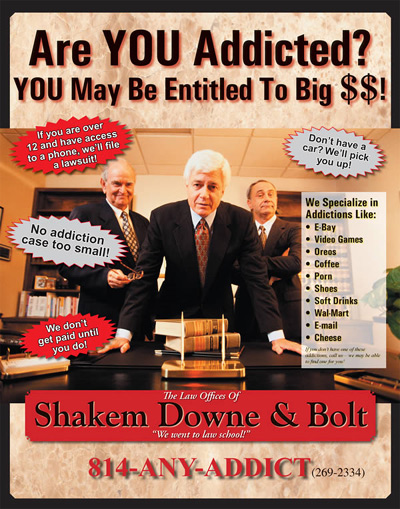A headline in the Marketplace section of Monday’s Wall Street Journal (1/7/2013) gave some sobering news: “Layoffs Threaten Law Firm Partners.
First it was staff, then associates, now partners?
Let’s blame it on the economic downturn.
According to the article (as well as a dozen others I’ve read lately), law firm partners are drowning in dismal numbers—billable hours down, surplus of under utilized lawyers up—and it’s cutting into their profits.
“Rate increases are hard to come by, demand is not increasing,” says the managing partner of a large Washington DC firm quoted in the article.
Further, clients, facing their own belt tightening, are waging a rather aggressive campaign against the very fabric of the law firm business model—the billable hour. They are asking for fixed fees, predictability, value, and cost control.
Damn that economic downturn. Such a spoiler. What can we do?
Out of the mouths of babes…
Yes, the economic downturn has forced law firms to re-evaluate some things. But, I’m not convinced that the economy is their biggest enemy.
According to one sacked partner quoted in the WSJ article:
“It isn’t enough to be a good lawyer. You have to make money for the firm.”
Ah….yes, Mr. Sacked, I think you’re on to something.
It’s not enough to be a good lawyer, you have to make money for the firm…in order for it to exist! (Did he think lawyers were above the law of the marketplace?) Everyone in the organization needs to be contributing to the economic engine—sales. And, while I genuinely feel compassion for the lawyer who just wants to be a good lawyer, the reality is…
IT’S ABOUT TIME! Stop putting lipstick on the pig. Superficial changes (de-equitized status, re-assigning practice areas, or allocating extra committee work) are futile attempts to disguise the true nature of a partner that simply can’t (or refuses responsibility to) sell their services. When law firms stop buying lipstick and start investing in sales and marketing talent (or training), we will see a different headline.
“Law Firms WOW! Clients and Exceed Profit Projections”
Like all highly competitive businesses, law firms need to be stepping up sales teams and focusing on adjustments that allow them to produce, distribute, and sell their services more efficiently. They should be delivering a WOW! experience for their clients that spreads virally and attracts more prospects. They should be training their teams in how to handle those prospects; how to find common ground with other people, and how to recognize and act on selling opportunities. (Ugly words for the lawyer who just wants to practice law. Music to the ears of those partners who have been carrying the burden for all these years.)
How to reach WOW! and get some relief for that handful of rainmakers.
Step #1: Institutionalize the biz dev process.
Identify the players. Statistically, probably 20 percent of your lawyers are naturals. They’re probably extroverts with the gift of gab and an extensive network. They’ve figured out how to win clients on their own. Another 60 percent will need to be taught. The bottom 20 percent? They will likely never be successful at sales. This is NOT necessarily a negative thing if they are exceptional minders and grinders. Every firm needs a percentage of minders and grinders. But, this needs to be openly acknowledged and a respectful path created for them as they fill this necessary role. (See also sales teams.)
Once everyone is aware of what is expected of them, you’ll be on your way.
Step #2: Create sales teams.
An ideal sales team will include at least one extrovert with sales experience (a natural gift of gab), one with service senses (a good listener), and another with a skill set for the substantive. This can be a combo of attorneys and/or biz dev professionals, marketers or even other administrators depending on the type of client. It is rare that one individual can, or even should, occupy those three roles on their own.
Step #3: Encourage your teams.
All people need encouragement to some degree. Not withstanding recognition and reward, encouragement can come in other forms and through other vehicles such as during regular sales meetings (to review prospects and get people acting) and meaningful educational programs. Additionally, teams must have sales quotas and accountability. Review and revise is mandatory.
Step #4: Be consistent.
Any lapse in consistency of the administration of a sales program—conducting reviews, evaluating quotas and providing encouragement—will kill sales. The reasons law firms fail to be consistent are many: procrastination, schedule conflicts, loss of interest, death by committee, and etc. Recognize the warning signs and persevere. If you don’t, your law firm will be right back where it started…losing revenue.
Step #5: Stop treating marketing and business development as a cost center.
Oddly, many law firms hire marketing and business development personnel who have NEVER SOLD A THING IN THEIR LIFE! This is a mistake. Sales in theory and sales in practice are two entirely different skills.
Anyone can attend sales seminars or read books, articles, and blog posts about sales that can make them feel capable of telling attorneys what they needed to be doing. But I believe (and have learned from my own experience) that talk is cheap. It wasn’t until I left my law firm job to start consulting where I had to sell myself every day in addition to “minding the store” —taking care of clients, delivering the service, and managing the finances (that aren’t always as predictable as you’d like them to be)—that I understood THIS is the reality for lawyers who—as Mr. Sacked would say—have to “bring in money.” It is only when business development professionals can feel their pain—be accountable for quotas, juggle the left and right brain activities, and learn how to implement theory—that they will truly earn an assist.
Here are some of the keys to transitioning biz dev to a revenue center rather than a cost center:
These talented professionals should be there in the pre-sale meetings and post-sale meet and greets. They should be given the equal respect they deserve as a member of the revenue team. They don’t need to be JD’s to understand the general gist of the client’s legal problem; give them a five minute briefing. Then, acknowledge their particular gifts or practical experience in connecting the business problems behind the legal ones. As a member of the revenue team they can enhance and assist the sales process and the customer experience.
If 8 people in your biz dev organization bring in 20 million, could 16 people bring in 40? If they are the right people with the right tools and support, yes. Build that team.
Layoffs may be de rigueur for law firms today, but cost trimming isn’t enough. Blaming the economy isn’t effective, either. Neglect the real issue—reinventing or recharging your sales force—and you may find the next headline about your law firm in the obituary.





Surperb blogpost. This is must reading for all law firm managing partners and executive committees.
Thanks, John. I really mean it when I say I feel their pain. I hate selling! I love creating. And similarly, the practice of law is a passion.They didn’t sign up for sales, I get that. But, the reality is not going to change. The economy is what it is. Fix what you can control. There are plenty of folks like you and I who can stand in the gap. No matter how long you’ve been in the profession, there’s always something new to learn!
Excellent post, Jayne! Sadly, it reminds me of the precisely the same kinds of things you and I were both saying about lawyers and social media – 5 years ago. Only recently has that concept started coming on the radar for most law firms.
Sales and marketing are not something we are taught in law school. Continuing on into practice, I recently learned that you can’t get a marketing class approved for CLE unless it is heavily tilted in the direction of ethics. What? I understand that we are a self-regulating consumer protection body, but this is ridiculous. Continuing legal “education” can and should be more than protecting consumers.
On a happier note, I am starting to see firms hiring more non-lawyer biz dev “kids.” Maybe we’re nearing the tipping point for the start of some much needed innovation in our industry.
Me too, Tracy. I met a young lawyer the other week who was ready, willing and able. Guess those law school loans are a big motivator :-). Seriously though, it’s complicated. If a person doesn’t want to change, they won’t. Some personalities are tougher than others. In the case of partners, there is ego at stake. Until desperation sets in, and I’m not sure we’re there yet, the majority of firm management will side with tradition. And we all know how deep that runs…
excellent post all round but 2 big takeaways from me :-
1. as with many things in life, real change only happens when the status quo is too painful – when partners get impacted, change may start happening.
2. your point about consistency. so many law firms treat sales and marketing as ad hoc activities – they are processes not events.